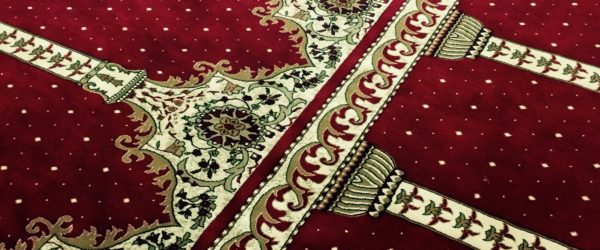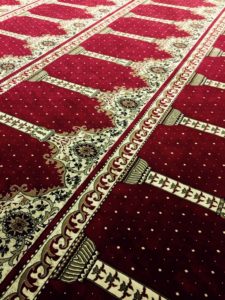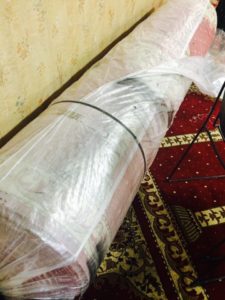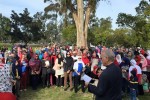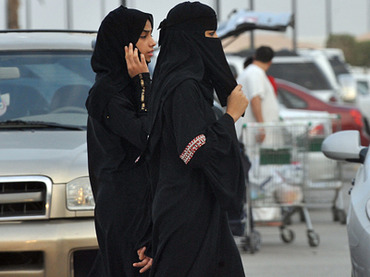This post was written by guest contributor Nahida (@haraammermaids).
One of my favorite ahadith states the following: the Prophet (SAW) said, “The souls are like an army joined in the world of spirits; whichever souls knew each other [in that world] are attracted towards each other in this world, and whichever remained distant and indifferent there are distant and indifferent here” (al-Bukhari).
During Ramadan, I feel the draw of this former existence, but never with whom I’m expected. I recently reluctantly changed the gloriously wild masjid I used to attend, with horses and tangled weeds, for one downtown, and the congregation has a different disposition. There are fewer attendees, and I’m stunned every time a brother smiles at me or speaks to me because as a woman I’m so accustomed to being avoided and dismissed. I still, however, dislike attending any mosque with a barrier and a conspicuously smaller women’s area that’s also utilized to store unused carpet or extra chairs. I “should” feel a sense of companionship with the Muslim community, but I don’t.
Maybe we didn’t know each other in this previous existence. Maybe we did, and kindred spirits turn into oppressors. But I don’t think so. I, prone to believing that the transformative powers of love are always inclined to the dispositions of their souls, trust that friends would recognize one another. I’ve encountered souls whom I’ve convinced I was always meant to meet, and at times even myself thinking how lovely to reacquaint with you. But there is a hollowness to the masjid, so different from the affection I feel when I dine with friends at iftari.
There is, consequently, never a time I am more starkly aware of my contrary lives than during Ramadan. I want to simultaneously have iftari with my family and with my friends, and I’m confronted with how unfair it is that I can’t do both, due to gender segregation or cultural conflicts or God/dess know what social overtones and undertones police our behaviors to birth awkward situations and anxiety. I slip off my pantyhose when my front door closes behind me, and devastatingly enough, I do the same with the company I keep, when I merge from one life into the other.
And so I make choices that would bring me to tears if I stopped to think about them long enough—fortunately, I never do. I tear myself away from my mother during iftari on nights I’d like to be near her, in order to see friends I care deeply about. I miss moments with them to feel in one piece with her.
But I am never truly in one piece, which I know on a rational level, and not because I’ve experience what one piece feels like for comparison. No, I know that when your life is sectioned into pieces, so are you.
During Ramadan, my introverted self craves connection—though true to its nature, in small parties. So I write in the morning, finish some schoolwork, pull myself to the office for hours, and then have dinner with my friends on the days I don’t see my mother. I laugh often, the kind of laughter that is genuinely happy but strangely sad, the kind that sounds as charming and lively as you feel but sits deep in you like heartbreak.
I wonder sometimes if God/dess misses me. Occasionally, I ask Her. “Tell me You miss me,” I’d say. “Tell me You sobbed when You sent my soul to wander into the world and fade into existence. This new existence, where I’ve forgotten my companions, where I’ve forgotten You and have come to relearn You, over and over again.”
And so, in the last ten days of Ramadan, I’d like to wish Ramadan Kareem to my soulmates—those whom I’ve met, and those I haven’t. May you all find yourselves content, in one piece.

